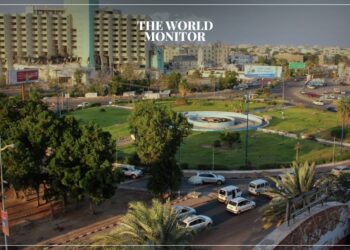The Joint Disarmament Authority in Chad announced the seizure of more than three thousand weapons between May 2023 and July 2024 near its borders with neighboring countries, including Libya.
General Taher Youssef Boy, the coordinator of Chad’s Joint Disarmament Authority, stated in remarks to local media on Sunday that the authority had recovered 3,094 firearms. He highlighted that the country faces an influx of weapons from neighboring conflict-ridden countries, emphasizing the urgent need for disarmament.
General Boy added that these illegal weapons were seized in N’Djamena and various provinces, as well as along the borders with neighboring countries like Libya, Sudan, and the Central African Republic.
The Proliferation of Weapons Fuels Sectarian Conflicts in Chad
According to the official, these illegally owned weapons are fueling the sectarian conflicts witnessed in Chad. He noted a significant decrease in these conflicts, which he considers evidence of the success of the Joint Disarmament Authority’s efforts. He called on civilians to relinquish illegal weapons.
The disarmament authority, established in 2021 following the death of President Idriss Deby, aims to disarm civilians to restore stability to Chad. Disarmament is a key component of the government’s program to ensure citizens’ security and reduce violence.
Arrest of a Gang Specializing in Arms Smuggling Across Borders Between Libya and Neighboring Countries
Last Saturday, the “Enhanced 128 Brigade” announced the arrest of a criminal gang specializing in the transportation and smuggling of arms across the shared borders between Libya and its neighboring countries.
The brigade stated, “After several days of investigation and surveillance, the 77th Combat Company of the Enhanced 128 Brigade raided and arrested a criminal gang specializing in arms transportation and smuggling across the shared borders between Libya and neighboring countries, comprising twelve individuals of Sudanese and Chadian nationalities, in the Timsah area in southern Libya. All the weapons and ammunition in their possession were confiscated.”
The former UN envoy Abdullah Batilly, in his last statement, described Libya as a “supermarket” for weapons used in the internal political competition among local armed groups, as well as in arms dealing and arms trade with its neighbors.






